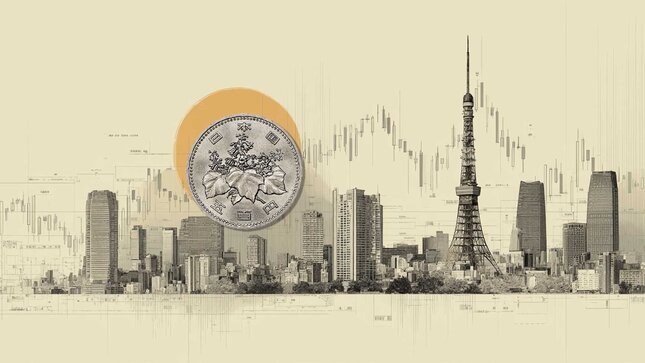In Michael Lewis’ latest book, “The Undoing Project,” he writes about a specific behavioral experiment performed on a set of first year residents and accomplished oncologists. In the experiment, the scientists asked the accomplished doctors to tell them how they make a decision regarding whether a patient has cancer from looking at an x-ray. The doctors all tended to give the scientists a 10 point checklist with a 1-10 rating for each of the 10 points, add up the points and you can accurately determine whether it’s cancer or benign. The scientists proceed to give a set of x-rays (the outcomes of which are known only to them) to the doctors and the residents, asking them to determine whether each is cancer or not. They also give the doctor’s checklist to the residents to use.
The oncologists who supplied the rubric in the first place show almost zero ability above random to accurately determine whether the x-ray was cancer or not. They didn’t follow their own rubric, suffered from an astounding amount of representative heuristic, and failed to do their job well. Meanwhile, the first year residents were able to score far higher accuracy rates on average and therefore would have been able to help their patients. They were simply acting as the human measurement component of an algorithm. In short the residents followed the rules while those who created the rules didn’t follow them at all.
Leigh Drogen, CIO of Starkiller Capital writes a very elegant article in LinkedIn about how investment managers and traders pretty much fall into the same trap and his main point is that we would all be better performers if we acted more as a human algorithm rather than impulsive, inconsistent creatures that we are.
No argument from me.
But there is a very subtle but important difference on what it means to be a “human algorithm” depending on the type of strategy you trade. If you are trading an “insurance” strategy like I do in my trade room every day your single biggest risk is adverse selection. In the insurance model you make money almost all the time, but occasionally suffer a few large losses. You are trading for income rather than return and as with any insurance business your single most important function is to avoid loss as much as possible. So to be a truly effective “human algorithm” you need to control FOMO. The motto in my room is “Never Chase. Retrace.” This can be excruciatingly painful to practice in high momentum markets as you sit on your hands while others are making bank. But if you don’t master this one skill you will never succeed with this particular strategy.
On the other hand if you are trading the have-a-hunch-bet-a-bunch lottery model then the “human algorithm” must act in a completely opposite way. You have to seek out risk anywhere and anytime it appears because you never know when the trade could turn into a 10R return while enduring three, four, five, ten consecutive stop outs on false entries. You must in effect train your “human algorithm” to be like the young Kevin Bacon in Animal House as repeats “thank you sir may I have another” as upperclassmen mercilessly paddle his butt. That’s a pain of a different kind altogether.
So the real question isn’t that we should all strive to be a “human algorithm” in our trading, but rather that we should ask what kind of algorithm we want to be. The more honest we are with the answer, the better trader we will be.
Past performance is not indicative of future results. Trading forex carries a high level of risk, and may not be suitable for all investors. The high degree of leverage can work against you as well as for you. Before deciding to trade any such leveraged products, you should carefully consider your investment objectives, level of experience, and risk appetite. The possibility exists that you could sustain a loss of some or all of your initial investment and therefore you should not invest money that you cannot afford to lose. You should be aware of all the risks associated with trading on margin, and seek advice from an independent financial advisor if you have any doubts.
Editors’ Picks

EUR/USD: US Dollar to remain pressured until uncertainty fog dissipates Premium
The EUR/USD pair lost additional ground in the first week of February, settling at around 1.1820. The reversal lost momentum after the pair peaked at 1.2082 in January, its highest since mid-2021.

Gold: Volatility persists in commodity space Premium
After losing more than 8% to end the previous week, Gold (XAU/USD) remained under heavy selling pressure on Monday and dropped toward $4,400. Although XAU/USD staged a decisive rebound afterward, it failed to stabilize above $5,000.

GBP/USD: Pound Sterling tests key support ahead of a big week Premium
The Pound Sterling (GBP) changed course against the US Dollar (USD), with GBP/USD giving up nearly 200 pips in a dramatic correction.

Bitcoin: The worst may be behind us
Bitcoin (BTC) price recovers slightly, trading at $65,000 at the time of writing on Friday, after reaching a low of $60,000 during the early Asian trading session. The Crypto King remained under pressure so far this week, posting three consecutive weeks of losses exceeding 30%.

Three scenarios for Japanese Yen ahead of snap election Premium
The latest polls point to a dominant win for the ruling bloc at the upcoming Japanese snap election. The larger Sanae Takaichi’s mandate, the more investors fear faster implementation of tax cuts and spending plans.
RECOMMENDED LESSONS
Making money in forex is easy if you know how the bankers trade!
I’m often mystified in my educational forex articles why so many traders struggle to make consistent money out of forex trading. The answer has more to do with what they don’t know than what they do know. After working in investment banks for 20 years many of which were as a Chief trader its second knowledge how to extract cash out of the market.
5 Forex News Events You Need To Know
In the fast moving world of currency markets where huge moves can seemingly come from nowhere, it is extremely important for new traders to learn about the various economic indicators and forex news events and releases that shape the markets. Indeed, quickly getting a handle on which data to look out for, what it means, and how to trade it can see new traders quickly become far more profitable and sets up the road to long term success.
Top 10 Chart Patterns Every Trader Should Know
Chart patterns are one of the most effective trading tools for a trader. They are pure price-action, and form on the basis of underlying buying and selling pressure. Chart patterns have a proven track-record, and traders use them to identify continuation or reversal signals, to open positions and identify price targets.
7 Ways to Avoid Forex Scams
The forex industry is recently seeing more and more scams. Here are 7 ways to avoid losing your money in such scams: Forex scams are becoming frequent. Michael Greenberg reports on luxurious expenses, including a submarine bought from the money taken from forex traders. Here’s another report of a forex fraud. So, how can we avoid falling in such forex scams?
What Are the 10 Fatal Mistakes Traders Make
Trading is exciting. Trading is hard. Trading is extremely hard. Some say that it takes more than 10,000 hours to master. Others believe that trading is the way to quick riches. They might be both wrong. What is important to know that no matter how experienced you are, mistakes will be part of the trading process.
The challenge: Timing the market and trader psychology
Successful trading often comes down to timing – entering and exiting trades at the right moments. Yet timing the market is notoriously difficult, largely because human psychology can derail even the best plans. Two powerful emotions in particular – fear and greed – tend to drive trading decisions off course.


